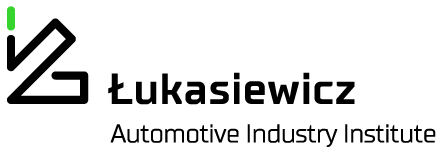RESEARCH PAPER
Analysis of the impact of degree of recirculation of exhaust gases and energy fraction of gaseous fuel on overall efficiency and basic parameters of combustion process of dual-fuel diesel (self-ignition) engine fed by natural gas
1
Uniwersytet Technologiczno-Humanistyczny im. Kazimierza Pułaskiego w Radomiu
2
Uniwersytet Technologiczno-Humanistyczny im. Kazimierza Pułaskiego w Radomiu, Wydział Mechaniczny, Instytut Eksploatacji Pojazdów i Maszyn
Publication date: 2018-03-30
The Archives of Automotive Engineering – Archiwum Motoryzacji 2018;79(1):65-76
KEYWORDS
ABSTRACT
In the Internal - Combustion Engines and Vehicles Division of the Humanistic-Technological University named after Kazimierz Pułaski in Radom there have been carried out research for many years on self-ignition dual-fuel engine with using different substitute fuels of low value of cetane number. Previous research showed possibilities of using considerable energy fractions of gaseous fuel [1, 8, and 9]. In the present paper there are presented selected results of research concerning utilization of natural gas. During execution of examinations it was observed that together with the change in energy fraction of gaseous fuel and change of degree of recirculation of exhaust gases the change of overall efficiency of engine as well as the change of parameters of combustion process takes place. In this paper there was made an attempt of evaluating the impact of application of different fractions of gaseous fuel and the degree of recirculation of exhaust gases on the parameters of combustion process. There was also made an attempt to clarify causes of the changes in values of overall efficiency as a result of observed changes in the course of combustion.
REFERENCES (11)
1.
Luft S. Analysis of combustion process in a dual-fuel compression ignition engine fuelled with LPG in liquid phase J. KONES 2007, Powertrain and Transport; Vol. 14 No. 4.
2.
Ogawa H, Zhao P, Kato T, And Shibata G. Improvement of Combustion and Emissions in a Dual Fuel Compression Ignition Engine with Natural Gas as the Main Fuel 2015; SAE Technical Papers 2015; DOI: 10.4271/2015-01-0863.
3.
Paykani A, Kakaee A.H, Rahnama P, Reitz R.D. Effects of diesel injection strategy on natural gas/diesel reactivity controlled compression ignition combustion. Energy October 2015 Volume 90; Pages 814-826; DOI:org/10.1016/j.energy.2015.07.112.
4.
Pielecha I, Wislocki K, Cieślik W, Borowski P. Analysis of a Dual-Fuel Combustion engine fueled with diesel fuel and CNG in transient operating conditions. SAE Technical Paper 2016, DOI:10.4271/2016-01-2305.
5.
Różycki A. Analysis of performances of a dual-fuel turbocharged compression ignition engine. Journal of KONES 2010; Powertrain and Transport, Vol. 17, No. 3.
6.
Sayin C, Canakci M. Effects of injection timing on the engine performance and exhaust emissions of a dual-fuel diesel engine. Energy Conversion and Management 2009; Elsevier, Vol. 50; DOI: 10.1016/j.enconman.2008.06.007.
7.
Skrzek T. Effect of the diesel fuel dose division and the injection angle on operating parameters of a dual-fuel compression ignition engine. PTNSS 3/2015 (162) – 3480.
8.
Skrzek T. Assessment of the effect of gaseous fuel delivery mode on thermal efficiency and fuel losses during the valve overlap period in a dual-fuel compression ignition engine. IOP Conference Series. Materials Science and Engineering, Number 1/2016; Volume 148, DOI:10.1088/1757-899X/148/1/012086.
9.
Stelmasiak Z. Combustion with low NOX and smokeless in a dual fuel diesel engine fuelled with natural gas as the main fuel. Journal of KONES Internal Combustion Engines 2004. vol. ll. No. 3-4, 218-225.
10.
Stelmasiak Z. Dual-fuel engines with self-ignition. Bielsko-Biała - Radom ITE; 2013.
11.
Wierzbicki S. Effect of the parameters of pilot dose injection in a dual fuel diesel engine on the combustion process. Journal of KONES 2011, Powertrain and Transport; Vol. 18, No. 3; 499-506.
Share
RELATED ARTICLE
Korzystamy z plików cookie (oraz innych podobnych technologii) i przetwarzamy unikalne identyfikatory oraz dane przeglądarki – w celu umożliwienia funkcjonowania naszej strony internetowej. Więcej informacji o tym jak przetwarzamy Twoje dane osobowe znajdziesz w



